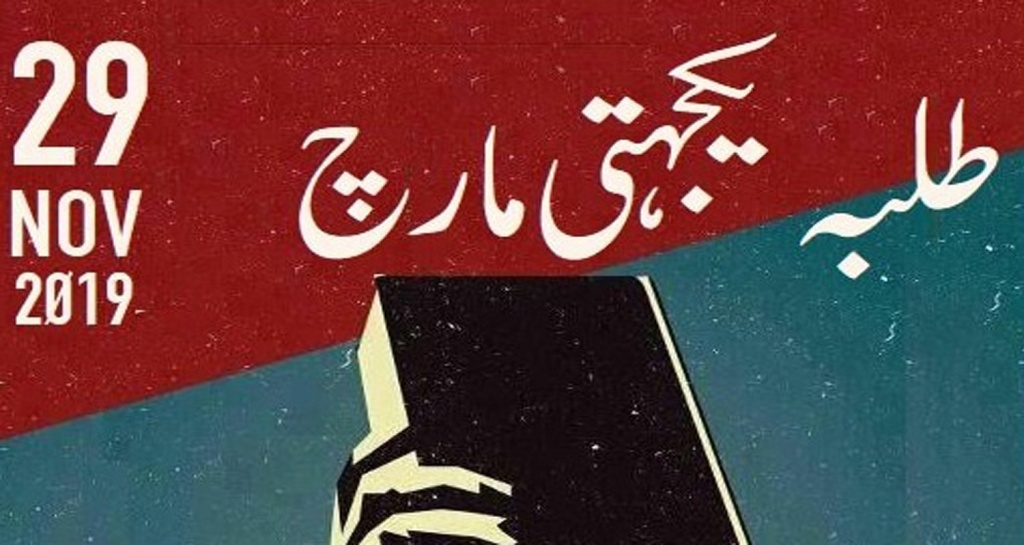This Friday on November 29, students from across the country will march to demand the restoration of student unions in Pakistan. The Students Solidarity March is also raising multiple other student concerns, ranging from Higher Education Commission’s budget cuts to fee hikes and the administration of hostels, but the question of student unions is central because in many ways it exemplifies the state’s narrow, authoritarian approach towards students and the education system. (Dawn News)
Comment:
In Pakistan, one is made to believe that education is the key to a better future and a better society. Yet it seems no matter how much time passes things are not getting better.
Although the education sector is a booming business in Pakistan, it has many flaws that are recognized by institutions, parents and students alike. At times the discussion will be about the lack of good curriculum, at others it will be about how private schools and universities operate and their fee increases. Whatever the issues, few look at the reasons why things are such a mess.
The Student Solidarity March is another indication that people are not happy with the status quo. 35 years ago the former military ruler General Zia-ul-Haq barred students from assembling on university and college campuses to demand their rights. And now it is felt that the rights of students need to be heard and their needs met. Since so much time has passed, it is thought that progressive ideas need to be used and students, being the future have an important role in setting agendas and affecting change.
When we look at this and other such problems that face a society, whether education, health, cost of living, etc., it is not pressure groups that should be bringing change. It is rather the responsibility of governments to set up correct structures and systems firstly, then the duty of citizens to check this. Engaging students as one action, while it can serve as a check on the way things are run, will not make a fundamental difference as the system in place is not made to serve citizens correctly. So, if the law allows Student Unions, it will be a limited change.
Capitalism supports the ones with money and power. It gives an illusion that citizens can engage and make change, but that change will only be such that it does not change the foundation of the society-i.e. that the rich stay in power.
The movement for change in any area should extend beyond one issue and look into changing the whole system as this is the effective change and this is the way we see our Messenger ﷺ tackled the idea of bringing change.
It is always good when people see problems, they speak out and they make plans for change. As aware Muslims, who have a perfect system and the example of the best advocate for change, Muhammad ﷺ, we should ensure that any calls for change are enlightened and comprehensive rather than just issue based. The demands for limited outcomes will serve current or future students, yet seeking complete change of this rotten system (not just the education system) will serve the whole of humanity.
Nazia Rehman

